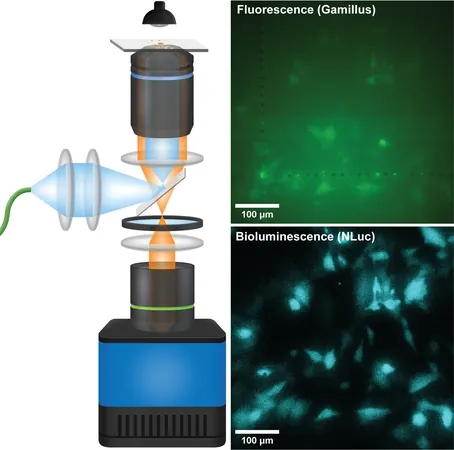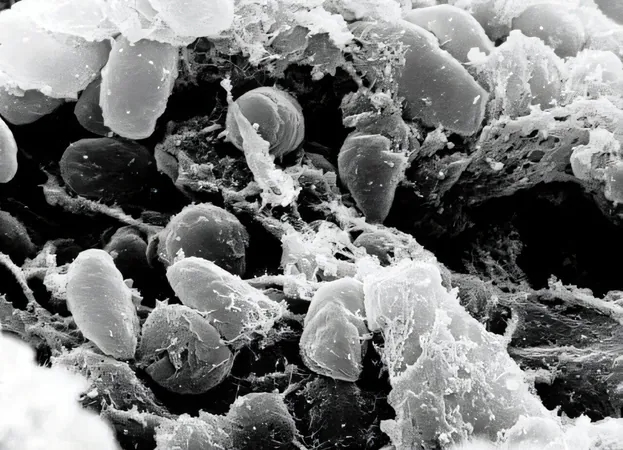
Revolutionary QIScope Microscope Transforms Bioluminescence Research
2025-05-29
Author: Siti
A Breakthrough in Microscopy for Living Cells
Scientists at Helmholtz Munich and the Technical University of Munich have unveiled a groundbreaking microscope called QIScope that dramatically enhances the observation of bioluminescent signals in living cells.
Meet QIScope: A Game Changer for Life Sciences
Harnessing advanced camera technology, QIScope can detect incredibly low light levels, resulting in sharper image resolutions and a broader field of view. It also seamlessly integrates various imaging techniques, paving the way for in-depth studies of living systems like never before.
The Power of Bioluminescence Explained
Bioluminescence, a natural phenomenon where certain enzymes in living cells emit light, is a potent tool in life sciences. Unlike traditional fluorescence imaging, which requires intense external light that can disrupt cell behavior, bioluminescence allows for gentler, long-term observations of cellular activities.
Overcoming Bioluminescence’s Biggest Challenge
Yet, the faintness of bioluminescent light has posed a significant challenge for researchers. To tackle this, Dr. Jian Cui and his team turned to cutting-edge quanta image sensor (QIS) technology, which significantly outperforms standard cameras in low-light conditions.
Innovation in Optical Design
Inspired by telescope optics, the team innovatively merged this approach with QIS technology to create QIScope. Ruyu Ma, a prominent researcher on the project, emphasized the system's ability to unveil cellular processes with unprecedented clarity and sensitivity.
Tracking Cellular Dynamics Like Never Before
With QIScope, researchers can now monitor intricate dynamics within living cells, such as vesicle movement and low-abundance protein behavior, over extended timescales. Jian Cui, the study leader, showcased the microscope's superior sensitivity, resolution, and dynamic range—crucial elements for successful live-cell imaging.
Integrating Imaging Methods for Better Insights
QIScope also allows integration with imaging methods like epifluorescence and phase contrast, minimizing disturbance to living systems—an essential factor for comprehending complex biological processes related to health and disease.
Empowering Biological Research
By addressing and overcoming the limitations of conventional bioluminescence imaging, QIScope emerges as an invaluable instrument for biological research, enabling the exploration of everything from single cells to organoids and tissue models.




 Brasil (PT)
Brasil (PT)
 Canada (EN)
Canada (EN)
 Chile (ES)
Chile (ES)
 Česko (CS)
Česko (CS)
 대한민국 (KO)
대한민국 (KO)
 España (ES)
España (ES)
 France (FR)
France (FR)
 Hong Kong (EN)
Hong Kong (EN)
 Italia (IT)
Italia (IT)
 日本 (JA)
日本 (JA)
 Magyarország (HU)
Magyarország (HU)
 Norge (NO)
Norge (NO)
 Polska (PL)
Polska (PL)
 Schweiz (DE)
Schweiz (DE)
 Singapore (EN)
Singapore (EN)
 Sverige (SV)
Sverige (SV)
 Suomi (FI)
Suomi (FI)
 Türkiye (TR)
Türkiye (TR)
 الإمارات العربية المتحدة (AR)
الإمارات العربية المتحدة (AR)